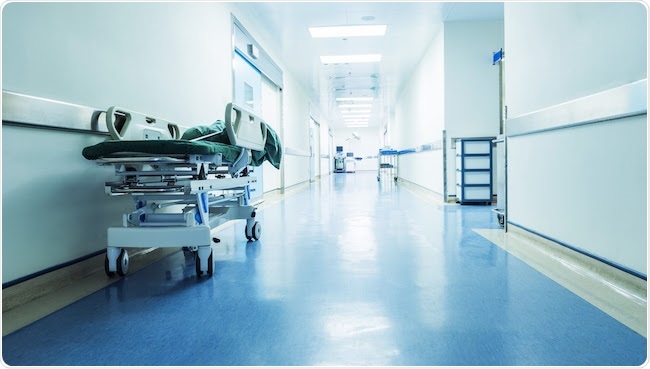These days, a crucial question on people’s minds is how long does SARS-CoV-2 immunity last after infection?

Severely ill patients who required hospitalization or ICU support had the strongest T cell responses. Image Credit: La Jolla Institute for Immunology.
Published in the Science Immunology journal on January 22nd, 2021, the study is the first to explain the T cells that combat the SARS-CoV-2 virus in “high resolution” detail.
This study highlights the enormous variability in how human beings react to a viral challenge.”
Christian H Ottensmeier, MD, PhD, FRCP, Study Co-Leader and Professor, University of Liverpool
Dr Ottensmeier is also an adjunct professor at La Jolla Institute for Immunology.
Ever since the initial stages of the COVID-19 pandemic, the LJI team has studied which T cells and antibodies are crucial for combating SARS-CoV-2. Vijayanand and Ottensmeier, who are both experts in genomics, have employed sequencing tools to reveal the types of T cell subsets that may regulate severity of the disease. Then in October, the researchers published the first comprehensive study of how CD4+ T cells react to the SARS-CoV-2 virus.
In the latest study, the team employed a method known as single-cell transcriptomics analysis to examine the expression of individual gene of over 80,000 CD8+ T cells obtained from both non-exposed donors and COVID-19 patients.
CD8+ T cells are essentially the cells that are responsible for killing virus-infected host cells. Also, “memory” CD8+ T cells are significant for protecting the body from reinfection against several viruses.
The researchers analyzed CD8+ T cells from a total of 39 COVID-19 patients as well as 10 subjects who were never been subjected to the virus (their blood samples were collected prior to the pandemic). Among the COVID-19 patients, 17 individuals had a milder case that did not warrant hospitalization, 13 individuals were hospitalized, and 9 others needed more ICU support.
To their amazement, the researchers observed weaker CD8+ T cell responses in patients who had milder cases of COVID-19 infection. They also observed the strongest CD8+ T cell responses in the extremely ill patients who needed ICU support or hospitalization.
There is an inverse link between how poorly T cells work and how bad the infection is. I think that was quite unexpected.”
Christian H Ottensmeier, MD, PhD, FRCP, Study Co-Leader and Professor, University of Liverpool
In the mild cases, one may expect to observe a stronger CD8+ T cell response because these are the cases where the immune system had the ability to combat serious infections; however, the study showed the reverse.
As a matter of fact, in milder cases, CD8+ T cells exhibited the molecular signs of a phenomenon known as T cell “exhaustion.” In the cases of the exhaustion of T cells, cells receive extreme immune system stimulation during a viral attack such that they become less effective in performing their tasks.
Although more studies are required, Vijayanand and Ottensmeier believe that it is worth investigating whether T cell exhaustion in the case of mild COVID-19 infection may suppress an individual’s capability to build long-term immunity.
According to Vijayanand, “People who have the severe disease are likely to end up with a good number of memory cells. People with milder disease have memory cells, but they seem exhausted and dysfunctional—so they might not be effective for long enough.”
The latest study offers a valuable window into CD8+ T cell responses; however, it is still restricted because it depends on the CD8+ T cells present in blood samples. As a subsequent step, the team hopes to shed new light on how T cells in tissues hit hardest by the SARS-CoV-2 virus, for example, the lungs, respond to the pathogen. Such a step will be significant because the memory T cells that offer long-term immunity had to survive in the tissues.
Ottensmeier added, “This study is very much a first step in understanding the spectrum of immune responses against infectious agents.”
In the future, the team is hoping to use single-cell sequencing methods to observe CD8+ T cells in cancer patients infected with COVID-19.
“This research highlights the power of these new tools to understand human immunology,” Vijayanand concluded.
Source:
Journal reference:
Kusnadi, A. et al. (2021) Severely ill COVID-19 patients display impaired exhaustion features in SARS-CoV-2-reactive CD8+ T cells. Science Immunology. doi.org/10.1126/sciimmunol.abe4782.